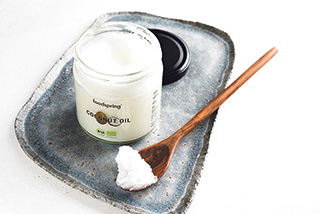Blog

Butter Is Back Baby
 I am not controversial by nature or training but I can’t run from a fight either. It pains me greatly when I read that the American Heart Association still, to this day, in spite of all the published and well researched information is still telling people to avoid saturated fats. Despite a mountain of evidence their recommendations about diet have not changed and they still recommend corn oil and canola oil. Forget “I cant believe its not butter.” I cant believe an organization entrusted with your health would continue to give out terrible advice … advice not based on science or research.
I am not controversial by nature or training but I can’t run from a fight either. It pains me greatly when I read that the American Heart Association still, to this day, in spite of all the published and well researched information is still telling people to avoid saturated fats. Despite a mountain of evidence their recommendations about diet have not changed and they still recommend corn oil and canola oil. Forget “I cant believe its not butter.” I cant believe an organization entrusted with your health would continue to give out terrible advice … advice not based on science or research.
If I am going to take on the AHA I have to come correct as we say in the hood. First I would tell you to check out YouTube videos by Nina Teicholz who has written extensively about this and her book The Big Fat Surprise is quite the read. I am not going to talk about my 30 years experience as a primary care doctor. I am not going to give my my opinion, I am not going to bring you my personal research. -I am going to share with you the obvious research that your own doctor should know … research that has been widely published and widely reported but ignored because it departs from the party line. Fat bad … clogs the arteries … carbs good … get most of your calories from that source. -Saturated fats very bad avoid at all cost. All of this is wrong. Let’s start with the basic fact that saturated fat is found aplenty in breast milk and we know how toxic that substance is!
The largest and latest study to look at high carb versus high fat diet called the PURE study demonstrated that high carb diets were bad for your health and high fat diets were good for your health. Another study PREVIMED also showed that high fat diets like the Mediterranean diet were much healthier than the standard high carb American diet. But those two individual studies are not enough to convince you so lets tally a little more evidence with 5 separate studies.
 Let’s start with Hooper L, et al. Reduction in saturated fat intake for cardiovascular disease – Cochrane Database Systematic Review, 2015. The Cochrane Database is considered one of the finest independent panels to review medical issues. This study involved 15 randomized controlled trials with over 59,000 participants. The conclusion was that “People who reduced their saturated fat intake were just as likely to die, or get heart attacks or strokes, compared to those who ate more saturated fat”.
Let’s start with Hooper L, et al. Reduction in saturated fat intake for cardiovascular disease – Cochrane Database Systematic Review, 2015. The Cochrane Database is considered one of the finest independent panels to review medical issues. This study involved 15 randomized controlled trials with over 59,000 participants. The conclusion was that “People who reduced their saturated fat intake were just as likely to die, or get heart attacks or strokes, compared to those who ate more saturated fat”.
Next up is a study by De Souza RJ, et al. entitled Intake of saturated and trans unsaturated fatty acids and risk of all cause mortality, cardiovascular disease, and type 2 diabetes systematic review and meta-analysis of observational studies – BMJ, 2015. The British Medical Journal is not some obscure publication. The data included 73 studies, with 90,500–339,000 participants for each endpoint. Their conclusion: People who consumed more saturated fat were not more likely to experience heart disease, stroke, type 2 diabetes or death from any cause, compared to those who ate less saturated fat.
 Next up is a study by Siri-Tarino PW, et al. Meta-analysis of prospective cohort studies evaluating the association of saturated fat with cardiovascular disease – American Journal of Clinical Nutrition, 2010. The studies included a total of 347,747 participants, who were followed for 5–23 years. Conclusion: This study did not find any association between saturated fat intake and cardiovascular disease.
Next up is a study by Siri-Tarino PW, et al. Meta-analysis of prospective cohort studies evaluating the association of saturated fat with cardiovascular disease – American Journal of Clinical Nutrition, 2010. The studies included a total of 347,747 participants, who were followed for 5–23 years. Conclusion: This study did not find any association between saturated fat intake and cardiovascular disease.
Then we have the much published Dr Chowdhury R, et al. Association of dietary, circulating, and supplement fatty acids with coronary risk: a systematic review and meta-analysis – Annals of Internal Medicine Journal, 2014. The Annals is also another mainstream medical publication. The study included 49 observational studies with more than 550,000 participants, as well as 27 randomized controlled trials with more than 100,000 participants. Conclusion: People with higher saturated fat intake were not at an increased risk of heart disease or sudden death.
 Finally, we have Schwab U, et al. Effect of the amount and type of dietary fat on risk factors for cardiovascular diseases, and risk of developing type 2 diabetes, cardiovascular diseases, and cancer: a systematic review – Food and Nutrition Research, 2014. Participants included both people who were healthy and those with risk factors. This review included 607 studies; randomized controlled trials, prospective cohort studies and nested case-control studies. Results: Consuming saturated fat was not linked with an increased risk of heart disease or an increased risk of type 2 diabetes.
Finally, we have Schwab U, et al. Effect of the amount and type of dietary fat on risk factors for cardiovascular diseases, and risk of developing type 2 diabetes, cardiovascular diseases, and cancer: a systematic review – Food and Nutrition Research, 2014. Participants included both people who were healthy and those with risk factors. This review included 607 studies; randomized controlled trials, prospective cohort studies and nested case-control studies. Results: Consuming saturated fat was not linked with an increased risk of heart disease or an increased risk of type 2 diabetes.
What does this all mean to you? The very simple take away message is that butter and olive oil, avocado and coconut oil are very good for you and corn oil, canola oil, safflower oil, sunflower oil and all the other processed oils etc. are bad for you. Since they are not saturated they are MORE liable to be oxidized than the saturated fats … and oxidation is bad for you. It’s not about your cholesterol level it’s about how oxidized your cholesterol is and that is controlled by your diet. The second take home message is that any oil in any frier in any restaurant is bad for you because the chemicals that are created when you heat these oils are super bad for you but that’s another article right there. Google it in the meantime.
It’s time again to challenge your health care provider … what are their recommendations about saturated fats? … are they following the party line? That’s easy but it’s wrong. What evidence do they have besides the unsupportable recommendations of the AHA? Look into who funds the AHA if you want to see why they haven’t updated their recommendations. Do your own research. … Its your health after all and what’s more important than your health? Sure there is some crazy stuff on the internet but its a powerful tool and available to everyone. It’s way past time to just trust your doctor. Partner with your health care provider to focus on your wellness. … Look past your illness and regain your wellness … more on this topic next month.
Until then … get well … stay well.

Leave a Reply